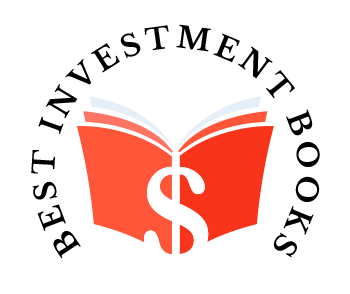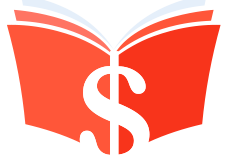Managing your money is one of the most essential skills for building a secure, fulfilling life. Yet, it’s not something most of us are formally taught in school. Without a clear plan, even the most financially successful individuals can find themselves struggling to meet their goals or make sense of their spending. That’s where money management books come in.
Books on personal finance and money management provide practical advice and valuable insights for anyone seeking to gain control over their financial future. Whether you’re overwhelmed by debt, looking to build wealth, or simply hoping to save money, the right book can be a life-changer. Here, we’ll explore five of the best money management books that combine practicality, inspiration, and actionable advice.
If you’re new to personal finance, you may also want to explore our list of good finance books for even more recommendations.
Why Money Management Books Matter
Money management isn’t just about making more money—it’s about using what you have wisely to achieve financial stability, freedom, and peace of mind. A solid understanding of money management can empower you to handle challenges, make informed decisions, and align your spending with your values.
Books on this topic often provide more than just tips and tricks. They offer frameworks for thinking about money in ways that promote lasting habits. Whether you’re trying to budget, invest, or retire early, these books are like personal finance mentors. They guide you with lessons from real-life success stories and proven strategies.
1. The Total Money Makeover
by Dave Ramsey
Dave Ramsey’s The Total Money Makeover has earned its reputation as one of the most popular money management books ever. Ramsey delivers a step-by-step plan for achieving financial health, starting with his famous “Baby Steps” approach.
The Baby Steps guide you through building an emergency fund, paying off debt using the “snowball method,” and then investing for long-term wealth. Ramsey’s advice is straightforward and no-nonsense, making it ideal for beginners or anyone who needs a financial reboot.
What sets this book apart is its focus on simplicity. Ramsey avoids complex jargon, instead emphasizing the importance of living within your means, avoiding debt, and being disciplined about saving. It’s a must-read for anyone looking to break bad financial habits and take control of their money.
2. Rich Dad Poor Dad
by Robert Kiyosaki
Robert Kiyosaki’s Rich Dad Poor Dad is a personal finance classic that challenges conventional wisdom about money. Through the lens of two father figures—his “rich dad” (a friend’s father who was an entrepreneur) and his “poor dad” (his own father, a government employee)—Kiyosaki illustrates the stark differences in financial mindsets.
One of the book’s central lessons is the importance of distinguishing between assets and liabilities. While many people think buying a home is an asset, Kiyosaki argues that true assets generate income, such as rental properties, businesses, or investments.
Rich Dad Poor Dad is more than just a personal finance book; it’s a wake-up call to rethink how we view money and wealth-building. It’s an excellent choice for readers who want to shift their mindset from working for money to making money work for them.
For more books like this, check out our guide to the best investing books for beginners.
3. Your Money or Your Life
by Joe Dominguez and Vicki Robin
Your Money or Your Life takes a holistic approach to money management, emphasizing that financial decisions should align with your values and life goals. Dominguez and Robin encourage readers to calculate their “real hourly wage,” which takes into account not just income but the time and energy spent earning it.
This exercise often leads to surprising realizations about what’s truly worth spending money on. The book also includes strategies for reducing expenses, saving aggressively, and even achieving financial independence.
Unlike traditional finance books, this one asks deeper questions about the role of money in our lives. Are your financial choices helping you create the life you want, or are they holding you back? If you’re ready for a transformative approach to money, this book is for you.
For a deeper dive into the broader category, check out our list of personal finance books.
4. The Psychology of Money
by Morgan Housel
Morgan Housel’s The Psychology of Money is a must-read for anyone who wants to understand the emotional and behavioral side of money. This book explores how psychology and personal experiences shape our financial decisions—sometimes more than logic or knowledge ever could.
Through engaging stories and accessible writing, Housel delves into topics like risk, compounding, and the importance of long-term thinking. One of the book’s key takeaways is that financial success isn’t just about making the “right” choices—it’s about making choices you can stick with over time.
The book’s relatable tone and actionable insights make it a standout in the money management genre. It’s especially helpful for readers who struggle with the emotional side of personal finance, like fear of investing or anxiety about spending.
5. You Need a Budget
by Jesse Mecham
If you’ve ever struggled to stick to a budget, Jesse Mecham’s You Need a Budget (YNAB) is the money management book book for you. It is based on his popular budgeting software of the same name. Mecham introduces four simple rules to help you gain control of your finances:
- Give every dollar a job.
- Embrace your true expenses.
- Roll with the punches.
- Age your money.
These rules are designed to be practical and flexible, allowing you to adapt as your financial situation changes. Unlike other budgeting approaches, YNAB emphasizes awareness and intentionality, helping you align your spending with your priorities.
What makes this book unique is its focus on teaching budgeting as a skill rather than just a series of tasks. By following the YNAB method, readers can not only pay off debt but also build financial resilience and confidence.
Choosing the Right Money Management Book for You
With so many great options, how do you decide which money management book to start with? It depends on your goals. If you’re focused on paying off debt, The Total Money Makeover is an excellent choice. For a mindset shift about wealth, Rich Dad Poor Dad is a classic. If you’re looking for a comprehensive life overhaul, try Your Money or Your Life. Those interested in the emotional and psychological aspects of money should pick up The Psychology of Money, while You Need a Budget is perfect for practical, hands-on budgeting help.
Final Thoughts
Managing your money effectively is a skill that pays dividends throughout your life. The books we’ve highlighted here offer a mix of practical advice, thought-provoking insights, and actionable strategies to help you take control of your finances.
If you’re ready to dive deeper into personal finance and investing, explore more great recommendations on good finance books, personal finance books, and investing books for beginners.
Start with one book, take its lessons to heart, and begin building the financial future you deserve.







